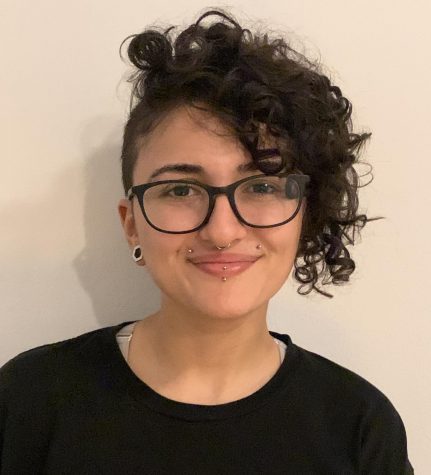Say It Right
Why it matters that your name is pronounced correctly
Our names hold a lot of power, and when they are mispronounced it hurts. An unusual name typically makes a child in grade school the target of teasing or bullying. Among immature peers and teachers who aren’t paid enough, little importance is placed on the value of one’s name being pronounced properly. However, this issue runs deeper than tears in empty bathroom stalls. The social drawbacks to having a hard-to-pronounce name can affect one’s self-esteem throughout life and their connection to their cultural identity.
Name mispronunciation in itself can be an insult if it is done on purpose. Yet most of the time people do not mispronounce other’s names on purpose. So it’s not immediately recognizable why it’s damaging when a well-intended person does this. But there are emotional and societal implications to constant name mispronunciation, especially when the name is unique to one’s culture or ethnicity.
I have never met anybody else with my name. When I first introduce myself to anybody new, I usually have to explain where my name came from and correct people on their pronunciation of my name … several times. To have to do this every time I meet someone new is exhausting. In elementary school, I made the lifelong decision to intentionally mispronounce my own name by not correcting my kindergarten teacher anymore. I did that to try and avoid some of those uncomfortable conversations. I hated having attention on me from a young age, but it felt strange to forego the moniker I was used to hearing at home. It didn’t stick at first, and I didn’t respond to [ mə•ni•fʌ ] until I heard my second-grade teacher explain that the reason she wouldn’t say my actual name was because it was “too hard to pronounce.” In my young mind, having also had to learn English as a second language, I thought, ‘Why is my name so difficult to pronounce? Why doesn’t the teacher struggle to say Elizabeth’s name?’ My family and other Armenians in my community didn’t see a problem with it, but my given name became a mark that I was different, sticking out like a sore thumb in all-white schools, and my differences were not to be tolerated.
Although it was clear to me at my young age that my teachers and peers were disrespecting me by mispronouncing my name (or at worst, refusing to even attempt my name), I was not equipped with the skills to cope with this. I began to resent my name and see it as a barrier to happiness and acceptance. I blamed my parents for naming me something so “ugly,” thinking its ugliness was why nobody wanted to say it right. Indirectly, I also hated my culture as I was encouraged to speak less and less Armenian and assimilate into American culture. These negative feelings about my name followed me from K-12 until I decided that I would change my name to something nobody would ever mispronounce again.
I later learned that the act of accepting an incorrect pronunciation of one’s name for white people’s benefit is called Americanization. In her article “Teachers, please learn our names!: racial microaggressions and the K-12 classroom,” UC Riverside Professor Rita Kohli writes on how harmful name mispronunciation can be, stating that it can be a form of racial microaggression. Mispronunciation of a child’s name in school serves as an example that “who they are and where they come from is not important. Furthermore, the cumulative impact of these subtle experiences with racism can have a lasting impact on the manner in which youth see themselves, their culture and the world around them”.
I socially changed my name to Andy at age 17, and after doing so, I was no longer decidedly different on paper. I was still racially ambiguous in person, but I never had to disclose that I was Armenian anymore, and considering I never identified with my culture, that seemed to work for me. But living as Andy for a year had the unexpected result of making me feel disconnected from my Armenian heritage. Technically, I had the option of revealing it whenever I wanted, but nobody asked, and why would they? I wasn’t unique anymore. Professor Kohli states, “These racial microaggressions present the greatest danger when the victims start to believe the message, and begin to doubt their place or cultural worth in US society. This can impact their aspirations, motivation, and love for their culture and themselves.” I think that what Kohli is describing happened to me, and it took a great deal of self-reflection to undo the insecurity Western society imposed on me for my name. Slowly, under the excuse of finding it too challenging to integrate “Andy” into the mouths of my family members, I accepted Manifa again, with a newfound urge to find value in my uncommon name.
The next time you encounter somebody with an uncommon, likely ethnic name, do your best to pronounce it correctly. I never find it offensive when people ask me for the proper pronunciation of my name; I would rather them ask than guess or refrain from attempting to say it at all. If you slip up, try not to draw excess attention to your mistake, just correct it and move on. Furthermore, people of color should not be expected to explain their culture or parents’ intentions in naming them either. These subtle actions make a big difference in the conversation around cultural diversity, and as Kohli writes, racial microaggressions are, “so rarely diagnosed as an affirmation of dominant racial and cultural power, the ability for this form of racism to penetrate the psyche is profound.”
Manifa Baghomian can be reached at [email protected]

